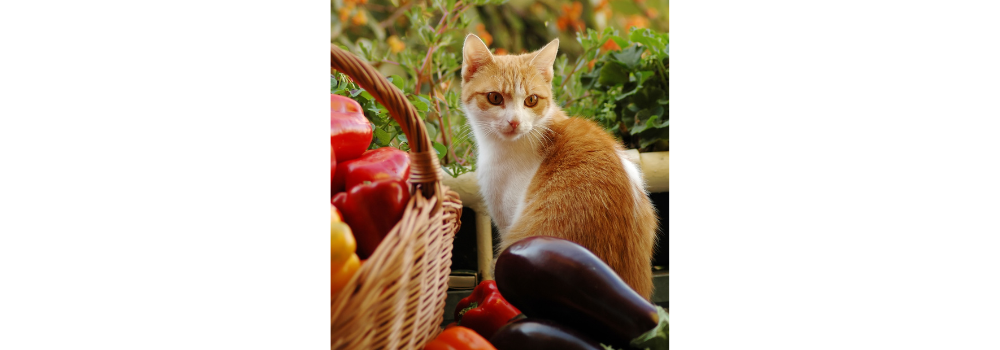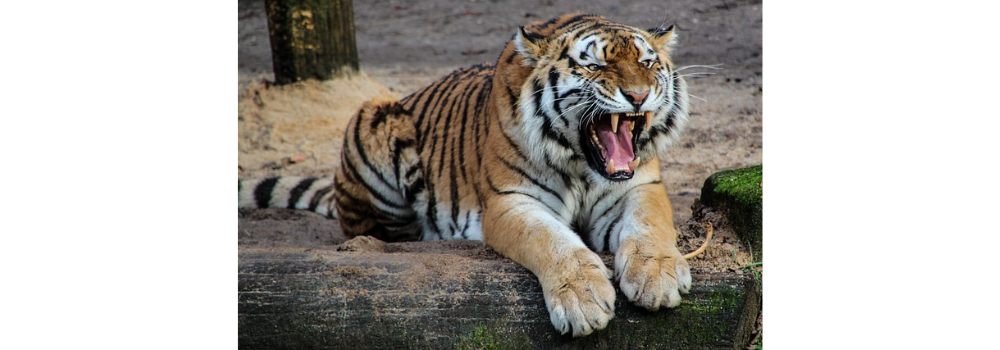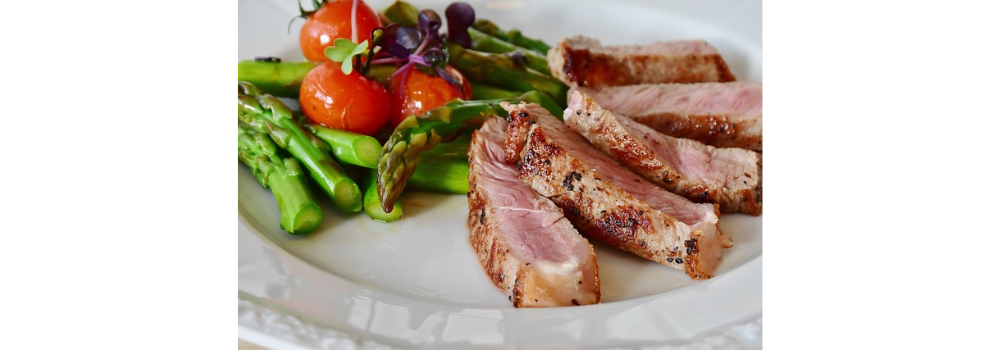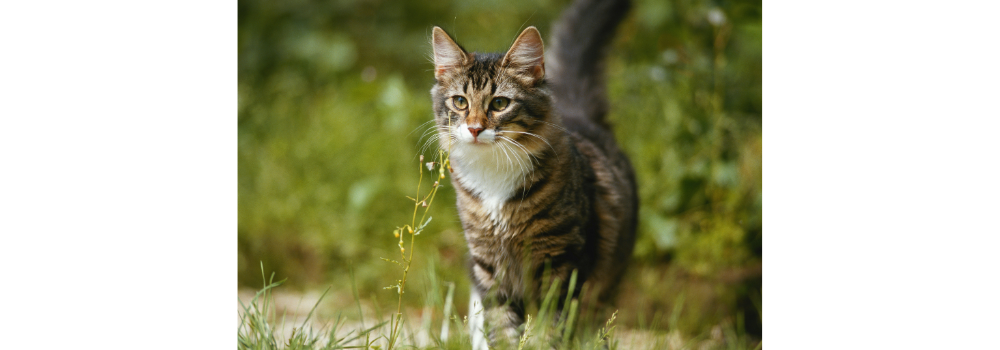
The controversy surrounding Vegan and Vegetarian Diets for cat food continues. As a veterinarian and cat mom of 3 who is passionate about holistic animal care, I've often found myself in the middle of heated debates regarding the appropriateness of feeding cats a vegan or vegetarian diet. This debate has resurfaced in light of a recent study that attempts to support vegan diets for cats.
Can cats, which are obligate carnivores, truly thrive on a diet devoid of animal proteins? Although the answer may be straightforward to many, we must revisit the topic to gain a better understanding.
The study that reignites the debate surrounding vegan cats
A recent study has challenged the long-held belief that cats cannot be healthy on a vegan diet. The study involved 1,369 cat owners and found no evidence to suggest that a vegan diet adversely affected the health of the cats. The study performed by Andrew Knight from the University of Winchester, UK, and his colleagues, is published in the open-access journal PLOS ONE(1).
The study participants chose a single cat in their household that was fed either vegan or meat-based cat food. Pet owners were asked a series of questions regarding health problems observed in their cats during the duration of the study, which lasted one year. 9% of the study participants fed a Vegan diet, while the others fed their study cat a meat-based diet.
Various indicators of health were looked at, including frequency of vet visits and veterinary assessment of being "unwell".
Owners who chose Vegan diets for their pets reported fewer veterinary visits, reduced medication use, and perceived that their veterinarian considered their cat to be in better health. The results, however, when compared to the pet owners feeding a meat-based diet, were not statistically significant.
While this study may be considered eye-opening for some, it will elicit eye-rolling from those who design rigorous studies to eliminate factors such as selection bias. They failed to state the percentage of vegan pet owners feeding vegan diets. Personal preference for choosing a diet was not controlled.
Of course, the Vegans would choose a Vegan diet and be inclined to perceive that it is beneficial. Likewise, those feeling a carnivore diet would go on business as usual. The study was funded by a food awareness website, www.proveg.com.
I will go on to look at the reasons for the controversy and what should be monitored should a pet guardian decide to feed such a diet.

Vegans and feline veganism
For many pet owners, the desire to transition their pets to a plant-based diet stems from a deep-seated love for all animals. The ethical dilemma faced by vegans and vegetarians who own pets is real. They grapple with the conflict between their pet's natural diet and their ethical stance against animal exploitation.
Another compelling reason is the environmental impact of pet food production. A study conducted at UCLA revealed that pet food production contributes significantly to greenhouse gas emissions(2). By choosing plant-based diets for their pets, some owners aim to reduce their ecological footprint.
Some pet owners believe that a plant-based diet can lead to better health outcomes for their pets, just as it does for them. This argument holds no merit as cats have a very different metabolism than humans.
Although there are many studies documenting the health benefits of a Vegan diet for humans, there are no studies that show the same benefits for cats.
The Debate Over Vegan Diets for Cats

I remember doing a house call years ago for a senior dog. I was sitting on the ground with the dog and looked over to see a cat sitting on a chair nearby. Its pupils were widely dilated in a bright and sunny room, which is unnatural, and likely the result of loss of vision. I inquired about the cat, asking questions about how it was doing in general. She told me that the cat only ate vegetarian cat foods. I tried to explain to her that the cat could possibly be losing its vision because of a lack of taurine in its diet. It didn't seem to respond as a visual cat would. The owner was vegetarian for religious reasons and was staunchly opposed to a meat-based diet. Although I couldn't be sure it was losing vision due to the diet, I walked away deeply concerned for the cat.
I understand people's passion for animal welfare and natural opposition to feeding meat-based diets. We need to look at alternative protein sources for all species on this planet.
I would advocate for increasing the calories from complex carbohydrates in the diets of dogs who can use carbohydrates for energy versus cats who cannot and merely shunt it into fat.
The Ethical Conundrum

For pet owners who are vegetarians or vegans themselves, feeding their cats a meat-based diet often presents an ethical dilemma. While humans can thrive on a plant-based diet, the same cannot be said with certainty for our feline friends.
I quote a well-known homeopathic doctor, Don Hamilton, in his book Homeopathic Care for Cats and Dogs: "As a longtime vegetarian myself, I fully understand the desire to limit consumption of animals as food. Yet, I believe feeding carnivores a vegetarian diet to be tantamount to abuse. I have seen cases of severe malnutrition due to (well-intentioned) limitation of animal products in diets of companion animals." He goes on to say: "The only fair choice if buying and feeding animal products seems impossible to you is choosing an herbivore rather than a carnivore as a companion." (3)
I would advise against feeding a vegan or vegetarian diet to a kitten that has increased protein needs, especially during development.
Cats: Obligate Carnivores by Nature

Cats are biologically adapted to consume meat. Their bodies require certain nutrients, such as taurine, arachidonic acid, vitamin A, and several B vitamins that are primarily found in animal tissues. These nutrients are essential for their overall health and well-being. A deficiency of these nutrients can lead to severe health issues, including heart disease, liver problems, skin conditions, and even blindness.
Some experts argue that a plant-based diet may not be suitable for cats due to their gut physiology, which is designed to metabolize a meat-based diet. Changing the flora from that present in a carnivore to that of an herbivore will change the bacteria present and could lead to inflammatory changes in the gut.
I'm also concerned about additives in many of these diets and the artificial flavorings that are included to get cats, who are normally very taste-driven, to eat meat. Think MSG. The industry to make food more palatable to pets is a multimillion-dollar business.
Moreover, many of these vegetarian diets are dry food diets, and they come with a host of metabolic issues, such as metabolic syndrome and a propensity to develop diabetes mellitus due to the higher percentage of carbohydrates present in dry diets.
Cats eating dry diets are more likely to experience urinary tract health issues due to the low thirst drive in many cats that have issues when they eat dry diets and the fact that changing from a carnivorous diet to one that is plant-based can cause pH changes that may encourage crystalluria.
Trying to create a nutrient profile for a carnivore means making synthetic forms of the missing nutrients needed. Take, for example, Taurine, which is only derived from meat. Synthetic taurine and other singular amino acids are less bioavailable when not present in their natural form.
Nutrient Dilemma

Health Risks and Deficiencies
Feeding cats a vegetarian or vegan diet can lead to nutrient deficiencies, resulting in conditions like taurine-deficiency-induced dilated cardiomyopathy, vitamin A deficiency, and arachidonic acid deficiency. It's therefore essential to ensure that all their nutritional needs are met when considering such a diet.
Taurine: Taurine is an amino acid that is crucial for cats' heart health, vision, and reproduction1. Unlike humans and dogs, cats cannot synthesize taurine from other amino acids, making it an essential part of their diet. Taurine deficiency can lead to severe health problems such as blindness, and dilated cardiomyopathy, a potentially fatal heart condition.
Arachidonic Acid: This fatty acid plays a vital role in inflammatory response and skin health. Cats cannot convert linoleic acid (found in plants) into arachidonic acid as humans and dogs can, making it another nutrient that must be directly obtained from their diet.
Vitamin A: Cats cannot convert beta-carotene from plants into vitamin A, which is essential for vision, growth, and immune function3. They must get pre-formed vitamin A directly from animal sources.
Vitamin B12 (Cobalamin): This vitamin is necessary for healthy nerve function and the production of red blood cells4. It's almost exclusively found in animal products, so supplementation is necessary on a vegan diet4.
Vitamin D3: Cats obtain Vitamin D3 from eating animal tissues rather than from sun exposure like humans5. It's crucial for bone health and calcium absorption5.
What Are the Risks of Feeding Your Cat Vegan Food?
A carnivorous diet would be more likely to create a different urine pH than a non-carnivorous diet. This could potentially lead to more issues with crystals if it affects the urine pH.

Ensuring Cat Health on a Vegetarian or Vegan Diet
If you're considering transitioning your cat to a vegan diet, it's crucial to consult with a veterinarian or a pet nutritionist. They can provide guidance on suitable plant-based diets and necessary supplements to prevent nutrient deficiencies.
Regular health check-ups and blood tests are also vital to monitor their health and detect any potential issues early.
Monitoring your cat's health while on a vegan or vegetarian diet is absolutely crucial. Given their biological makeup, cats have specific nutritional needs that are usually met by consuming meat-based diets. Switching to a plant-based diet may pose potential risks if not managed appropriately.
Regular Vet Check-ups
Regular veterinary check-ups are essential. Your vet can monitor your cat's weight, check for any abnormalities, and address any concerns you may have. They will be able to provide tailored advice based on your cat's age, breed, and overall health condition.

Monitoring at Home
Apart from these tests, monitor your cat at home. Watch out for changes in behavior, eating habits, stool consistency, and weight. If you notice any changes, consult with your vet immediately.
Blood Tests
The CBC can reveal conditions like anemia or infection. The Blood Chemistry Panel gives insights into the status of your cat's liver, kidneys, pancreas, and electrolyte balance.
Your veterinarian may also run more comprehensive tests, including taurine levels.
Vitamin D and B12 Testing
Testing for Vitamin D and B12 levels is vital. Cats cannot produce Vitamin D through sun exposure as humans do, and they typically obtain it from their diet. Likewise, Vitamin B12 (Cobalamin) is crucial for cats, and deficiency can lead to gastrointestinal problems.
If your cat is on a vegan or vegetarian diet, these vitamins should be supplemented and their levels regularly monitored.
Collecting Urine Samples
A Urinalysis can provide information about your cat's urinary system, revealing issues like urinary tract infections, diabetes, and dehydration. It can also help detect crystals in the urine, which could indicate a risk of urinary stones – a condition that can be influenced by diet.
Can You Feed a Cat a Vegan Diet?
In conclusion, while the idea of a vegan or vegetarian diet for cats is controversial, it's crucial to prioritize the health and well-being of our feline companions above all else until we have more evidence.
Monitoring a cat's health on a vegan or vegetarian diet requires a combination of regular veterinary check-ups, blood and urine tests, and careful observation at home. As responsible pet owners, our decisions should be guided by scientific evidence and professional advice, ensuring our pets receive the best care possible.

References:
(1) Knight A, Bauer A, Brown H. Vegan versus meat-based cat food: Guardian-reported health outcomes in 1,369 cats, after controlling for feline demographic factors
Published: September 13, 2023 https://doi.org/10.1371/journal.pone.0284132
(2) Dixon KA, Michelsen MK, Carpenter CL. Modern Diets and the Health of Our Planet: An Investigation into the Environmental Impacts of Food Choices. Nutrients. 2023 Jan 30;15(3):692. doi: 10.3390/nu15030692. PMID: 36771398; PMCID: PMC9919910.
(3) Hamilton DVM, D. Homeopathic Care for Cats and Dogs. North Atlantic Books, Berkeley, CA 1999, pp. 144-145.










